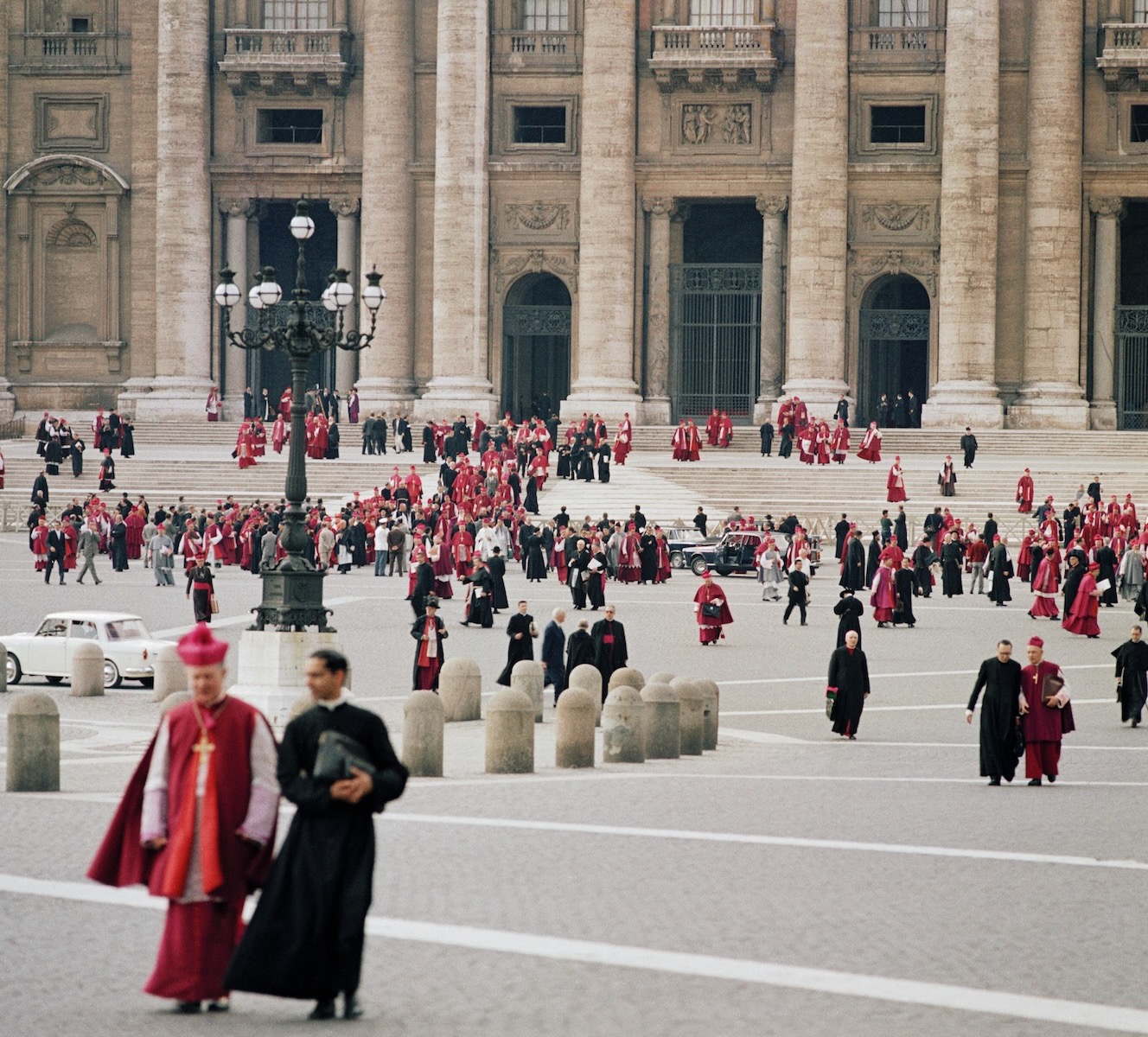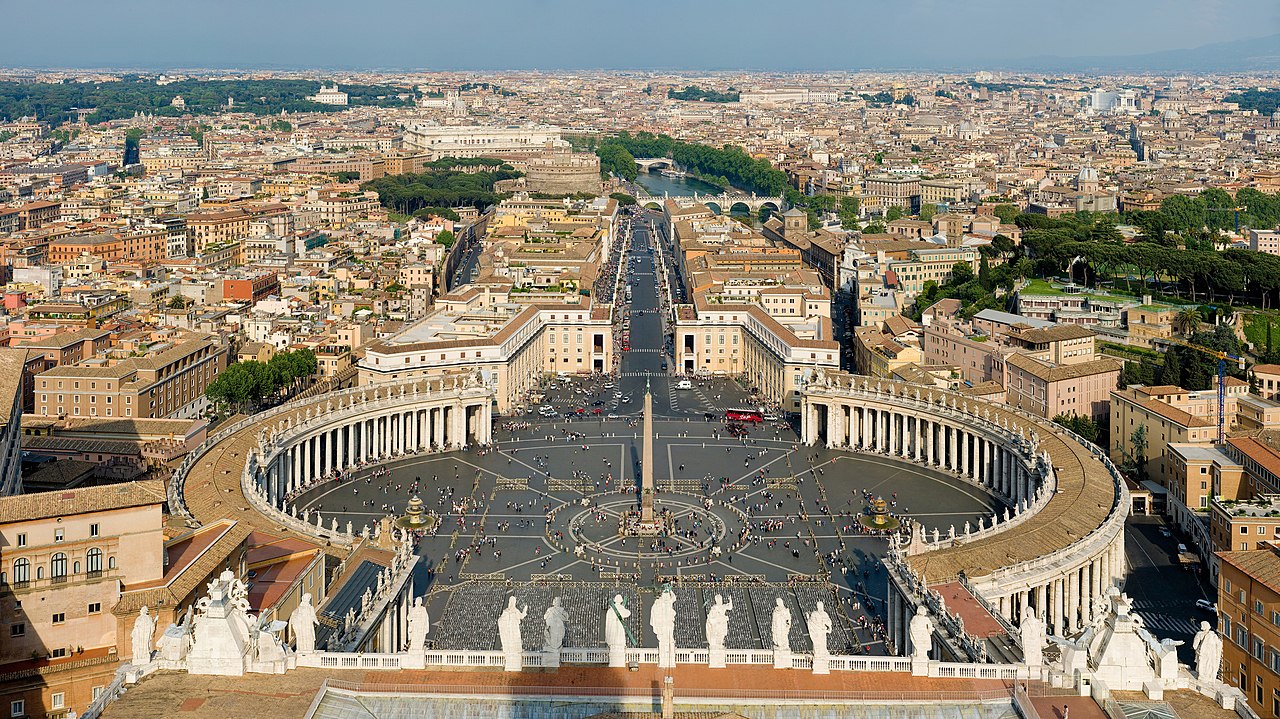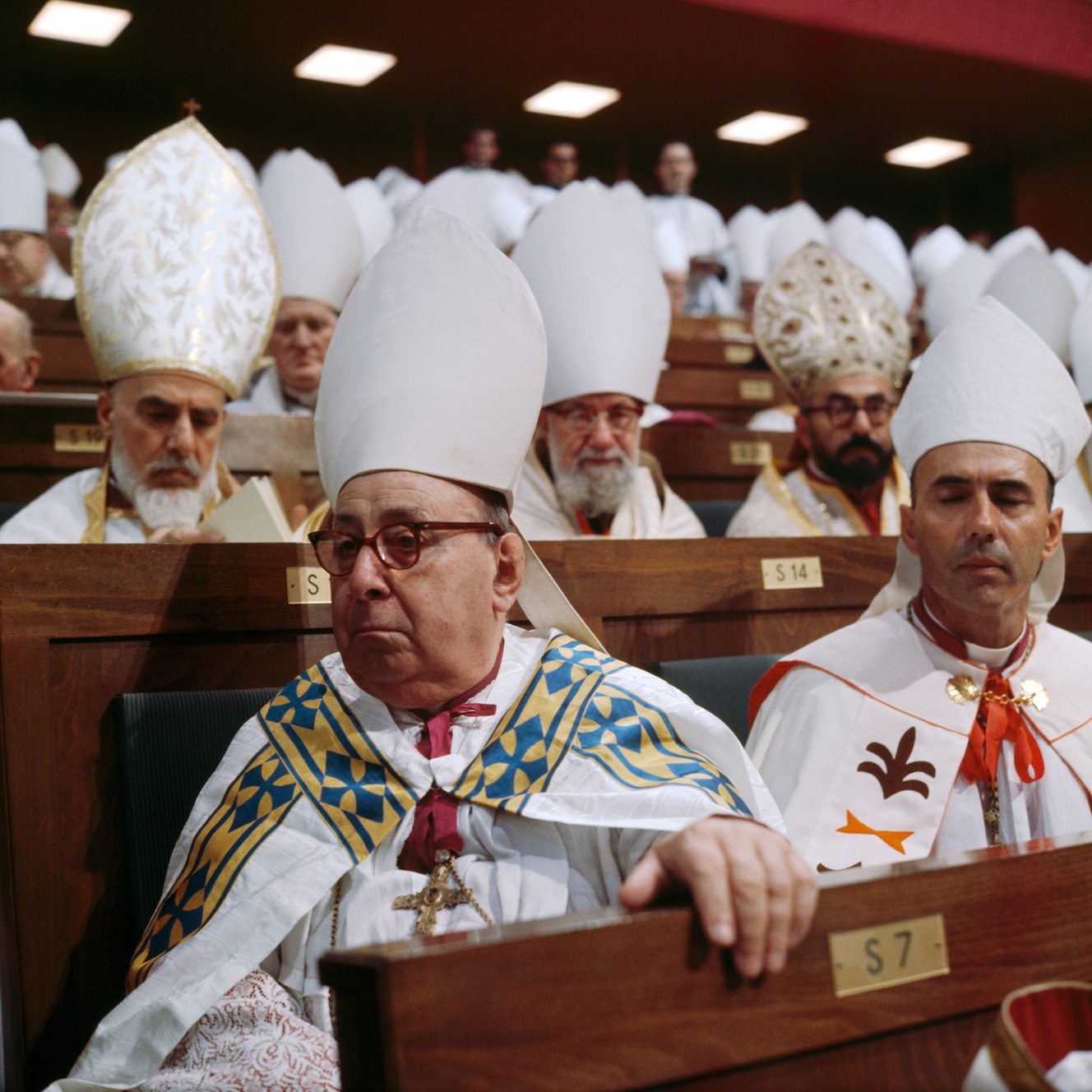
Second Vatican Council - Image Source
The apostle Paul makes it clear that Christ, when he gave himself for her, that is, for the church, sanctified and purified her "that he might present the church to himself in splendor, without spot or wrinkle or any such thing, so that she be holy and without blemish" (Ephesians 5:27). Therefore, the church does not need purification, but sinners do. And it is through the holy and immaculate church that this purification of the sinner takes place through the sacraments.
The problem is that these extremely relativistic statements in the conciliar documents confuse more than they clarify, and the Catholic faithful call for a coherent magisterium, not one that conveys ambiguities.

St Peter's Square, Vatican City - Image Source
The Council's intention in using the expression "subsists" is simply ecumenism. By stating that the Church of Christ only subsists in the Catholic Church, it is, therefore, more significant than the Catholic Church. So, the intention here is to signal schismatics and Protestants. But, once again, this has never been accepted by Catholic orthodoxy.
The infallible teaching of the church is that salvation is impossible outside of it ("Extra ecclesiam nulla salos"). Pope Pius IX, for example, taught that those outside the Catholic church can only be saved if they are invincibly ignorant of the need to be in the Catholic church.

Second Vatican Council - Image Source
In accordance with John XXIII's wishes, which Pope Paul VI later continued, instead of the church combating the enemies of the faith and proclaiming the truth, the documents of the Second Vatican Council merely preach a completely utopian dialogue with the secularized world and with false religions.
One of the Council's central objectives was the unity of all religions. And, as much as this may seem like a cute and politically correct speech to insert the church into the modern world, Our Lord always warned the disciples about precisely this. He says, "If you were of the world, the world would love you as its own. But since you are not of the world, but I chose you from the world. Therefore the world hates you" (St. John 15:19).
to be continued...

Follow me on Twitter
O problema é quando levamos tudo ao pé da letra.